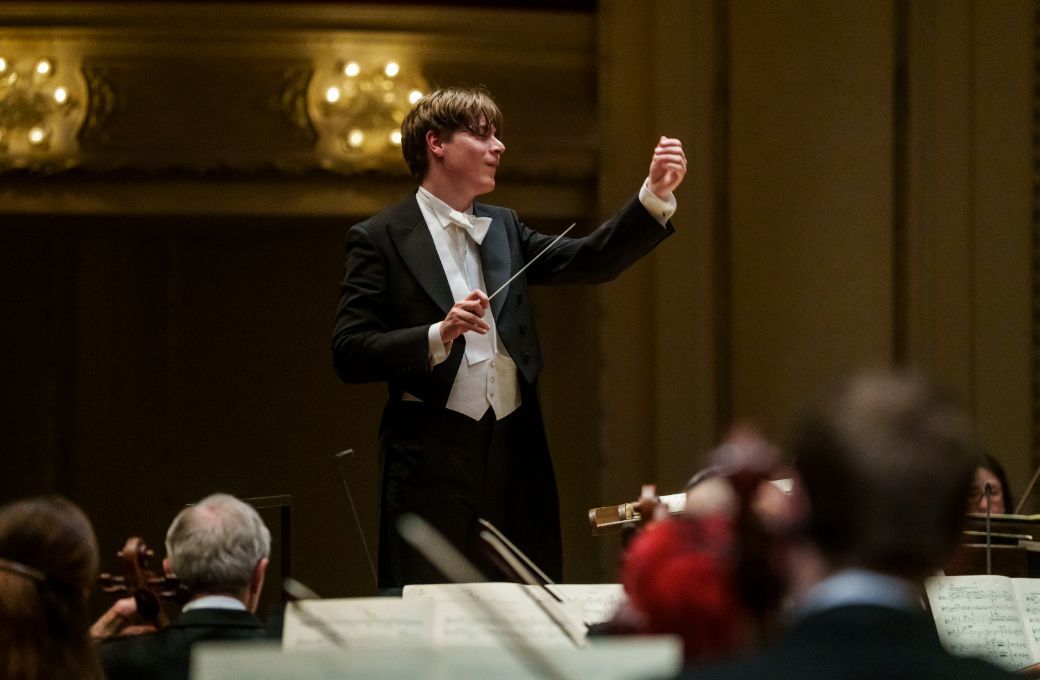Last April, after the Chicago Symphony Orchestra appointed Klaus Mäkelä its next music director on a Tuesday, he conducted subscription concerts Thursday through Saturday. That didn’t allow a lot of lead time for those of us (ahem) with inflexible schedules, so for many at Orchestra Hall this past weekend, it was the first opportunity to hear Mäkelä lead his new band, in advance of his tenure officially beginning in 2027. What we heard was Mahler's Third Symphony, a weighty choice in many senses of the word. Mäkelä proved himself ready to join the line of conductors helming the CSO in sweeping-canvas music, with the melodies arcing, the transitions smooth and the extremes extreme.

The CSO has built its reputation around Mahler. The orchestra has recorded all nine of his symphonies, along with Das Lied von der Erde, many of them multiple times, and has won a closetful of Grammys along the way. Many of former Music Director Sir Georg Solti’s recordings – he set down all nine – are still considered definitive by connoisseurs. The CSO’s Mahler prowess garnered them an invitation as the only American orchestra at the upcoming Mahler Festival in Amsterdam. The orchestra even owns its own custom-made box for the hammer to strike in the Sixth.
Longtime CSO fans worry about the orchestra maintaining its brassy, big-boned reputation, especially when passing the reins to a young buck like Mäkelä, when some members of the orchestra have tenures more than twice as long as he has been alive. (They take away my critic’s membership card if I don’t mention his age at least once per review!) So this orchestra, playing this composer, under this conductor, at this moment was freighted with significance.
The opening unison passage for the horns, very clean and very much in unison, started things promisingly (although the horns did descend to more humanly erring levels later). Then the bass drum rolling quietly – so quietly – electrified the air, chasing like a lit fuse. By the time the string tremolos began, the audience was rapt.
Mäkelä showed deliberate choices at every turn in the 90-plus-minute symphony. In folk-music-evoking sections, phrases were rounded off with slight ritardandos. Unusual orchestrations such as flutes with tremolo strings were expertly balanced. He comped for gorgeous solo playing, especially Principal Trumpet Esteban Batallán's off-stage posthorn solo. And reassuring the worriers, the stentorian fortissimos were as powerful as ever, with pulse-quickening crescendos to get there.
Mäkelä morphed the orchestra into radically different shapes. Here it was a lush Hollywood orchestra, there it was a country band; here they lead the dance, there they lead the march. He has already developed a sense of the range he can draw from the orchestra. What he did not manage was to compensate for places where Mahler does the orchestra no favors. Leading into the contralto-solo movement, the symphony tends to drag. Wiebke Lehmkuhl, the evening’s contralto, sang with an attractive, full tone, but the languors of the movement spurred yawns and sighs.
The applause after the baton dropped was raucous, with loud whoops for the brass soloists and children’s choir. Mäkelä acknowledged the appreciative audience, took a curtain call and then, upon leaving, gave a blink-and-you’d-miss-it homage to his MD predecessor, Riccardo Muti: a tiny glance over the shoulder and an intimate “ciao” kind of wave. The future feels bright in Chicago.


